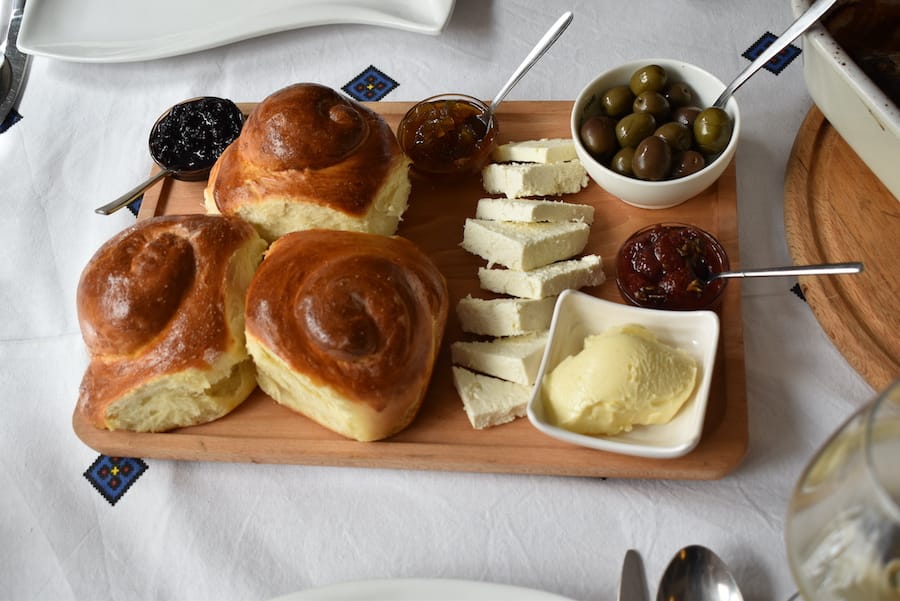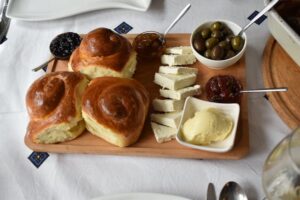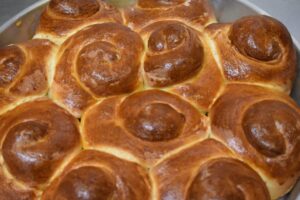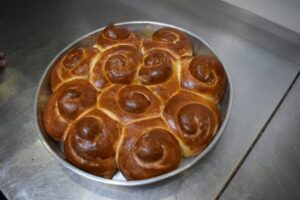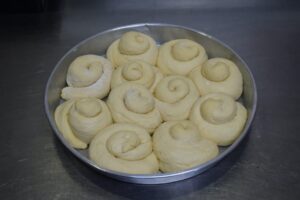Making chickpea flour bread is a very important element among the most significant events in the life of Pogradeci families, often turning into a ceremonial element. Christian families prepare chickpea flour bread in the following specific cases:
1- On the occasion of a child’s birth. About 2 weeks after the baby’s birth, its baptism is conferred amidst a communal celebration in the church, giving the child its name. The ceremony always follows with a convivial dinner party, with chickpea flour bread as one of the most important must-be elements of cooking.
2- At weddings. On the groom’s side, a chickpea dish is cooked on Sunday by one of the daughters-in-law of the house, provided that she has her mother and father alive. Chickpea symbolizes good luck and abundance, so two or three pots are prepared, for the bride and the groom. If the bride’s chickpea is leavened sooner, it means that the bride will be luck-bearing. The same goes for the groom. On the bride’s side, chickpea dough is kneaded on Wednesday while chickpea bread is baked on Thursday. The warm water in the vessel where chickpeas are cooked is customarily poured by a boy having his mother and father alive. The whole ceremony (cooking the chickpeas, kneading the dough, baking the chickpea bread) is amusing and cheerful, with hilarious and funny jokes and tickling the bride and groom pink. The ceremony goes with special songs such as:
“Qiqër hanko, qiqëra/ Të kam bërë një rixha/ Të vish nesër më saba/ Të bëjmë bukë për pasha/ Se martojmë djalënë/ Neve bukët do t’i bëjmë/ Në daç jak, në daç mos jak/ Rri mendoju edhe pak/ Në daç haj, në daç mos haj/ Rri mendoju gjer pastaj.”
(“Chickpea hanko, chickpeas/ Let me entreat you/Early tomorrow you to come/Let’s make bread for the pasha/Dear me! our son is getting married/We’ll offer the bread for him/It’s on you to come or not/ Just think a little more/It’s on you to come or not/Yeah, dwell on, dwell on.”)
Chickpea flour bread is also an important part of post-wedding rituals; for example, when the bride’s family pays a visit to the bride shortly after she arrives at the groom’s house, it is a custom to bring honey-dipped chickpea flour bread.
3- For the Easter celebration. The chickpea flour bread has been baked beforehand and is ready before Easter day. A red egg is hidden in the middle of it.
4- For the Eid celebration. In Muslim families, bread with chickpeas is mainly used for Eid and a little hallvë (halvah) is placed in the middle of it.

